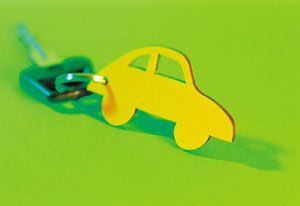Why You Should Not Skip Renters Insurance
 Renting a home can have the same risks to an occupant as owning a home. And while homeowners insurance is definitely a requirement for anyone who owns a home, many people struggle with whether they really need renters’ insurance. And they most often aren’t sure whether they need it due to the cost of coverage.
Renting a home can have the same risks to an occupant as owning a home. And while homeowners insurance is definitely a requirement for anyone who owns a home, many people struggle with whether they really need renters’ insurance. And they most often aren’t sure whether they need it due to the cost of coverage.
Those who rent their homes often view the cost of renters insurance as another bill to add to those they already have to pay. For example, when moving into a new home, a tenant may have to pay first and last months’ rent, in addition to a security deposit and perhaps even deposits to initiate the turning on of utilities. And this is in addition to any moving costs the renter may have incurred. So the fact that there are many renters out there without insurance coverage is definitely understandable.
But what many renters don’t realize is how having insurance coverage can benefit them. In fact, the benefits of having coverage can far outweigh the costs that a renter may pay each month in order to be covered.
What Renters Insurance Protects
Many renters believe that the insurance coverage their landlord has will be enough to cover them. Not so. The coverage held by a landlord only covers the rental unit itself and the property the unit sits on. Their insurance will not cover any damage to your personal property. Without renters insurance coverage, any damage incurred to your belongings due to theft, vandalism, or something another tenant does to it will not be covered.
More Than One Option
What is listed as a definite benefit for most renters is that renters insurance is available at several different price levels. Flexible options mean that you as a tenant can choose the level of coverage that’s most affordable for you. With a policy, you can ensure that your property is protected and that you receive either full replacement cost or depreciated cash value, depending on the item or items damaged.
Don’t Be Underinsured
Having an inventory of the items you own is crucial in order not to be underinsured. Your policy’s rate will depend on the type and value of your items. Any inventory should include the price, condition and appraisals of items. Keeping all receipts for items you’ve purchased in a single and safe place will be crucial to getting any claims settled in a timely manner.
Liability protection is another type of coverage that every renter would do well to consider, which will usually cover up to 50% of the policy’s total value. As well, additional coverage can be purchased in order to protect you in the event that something happens to your home that requires you to move out for a temporary period of time. This will allow you to meet daily needs such as doing laundry and paying for temporary accommodations.
Limited Coverage
One disadvantage to many renters’ insurance policies is the amount of coverage you receive. It is true that the onus will be on the landlord where damage occurs to the rental dwelling itself. However, this coverage may not extend to the interior of your dwelling. And so checking your policy is crucial. If your landlord’s insurance only covers the outside of their property, then getting renters insurance will be important.
Another limit on renters insurance is water damage. Questioning your water damage coverage is definitely important. If water damage was caused from below the property where you are renting, then any damage will likely not be covered. But if the damage occurred from above, such as because of a leaky roof, then it’s likely to be covered.
When deciding on whether or not you need renters insurance, it’s important to remember that even a small number of possessions can quickly add up in terms of dollar value. And although you will have to pay a deductible before being reimbursed by an insurance company, having coverage will help you to replace your lost or damaged items more quickly and easily than if you had to do it all on your own.
















